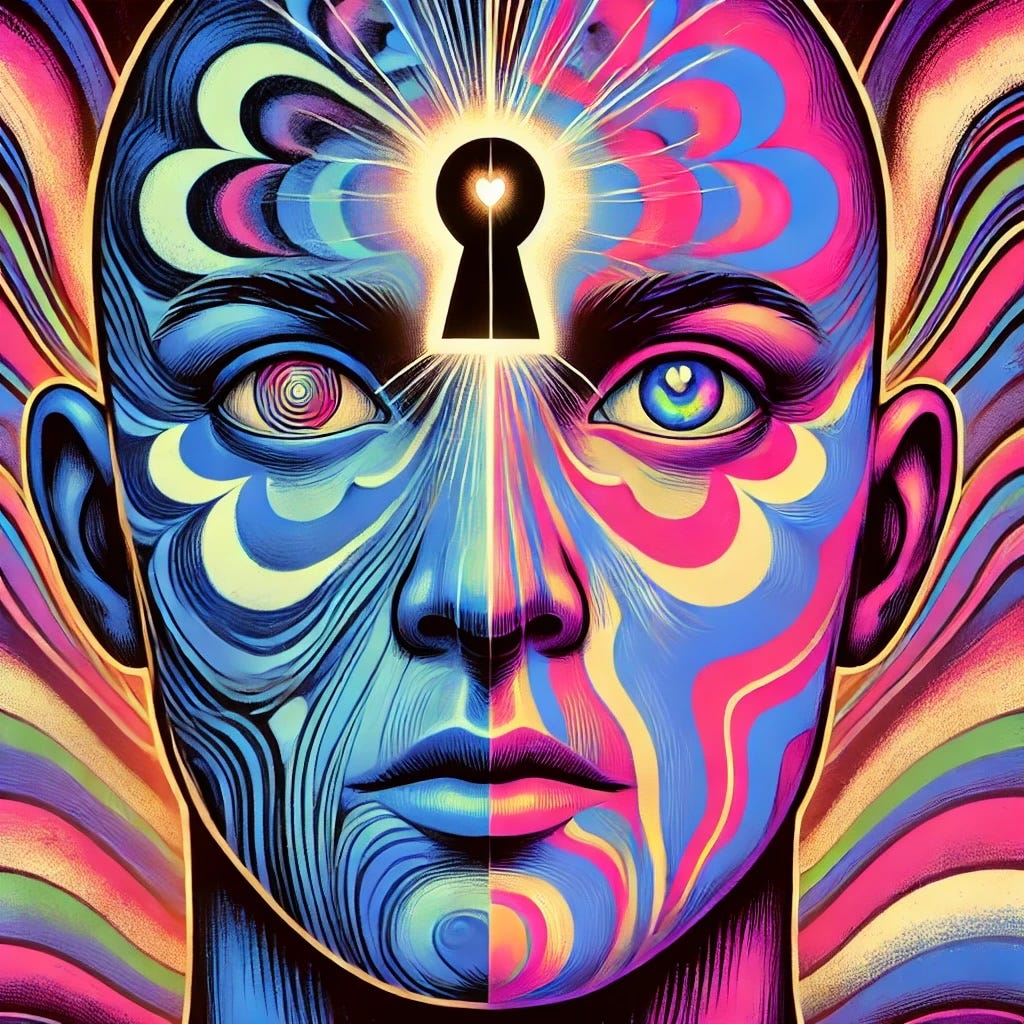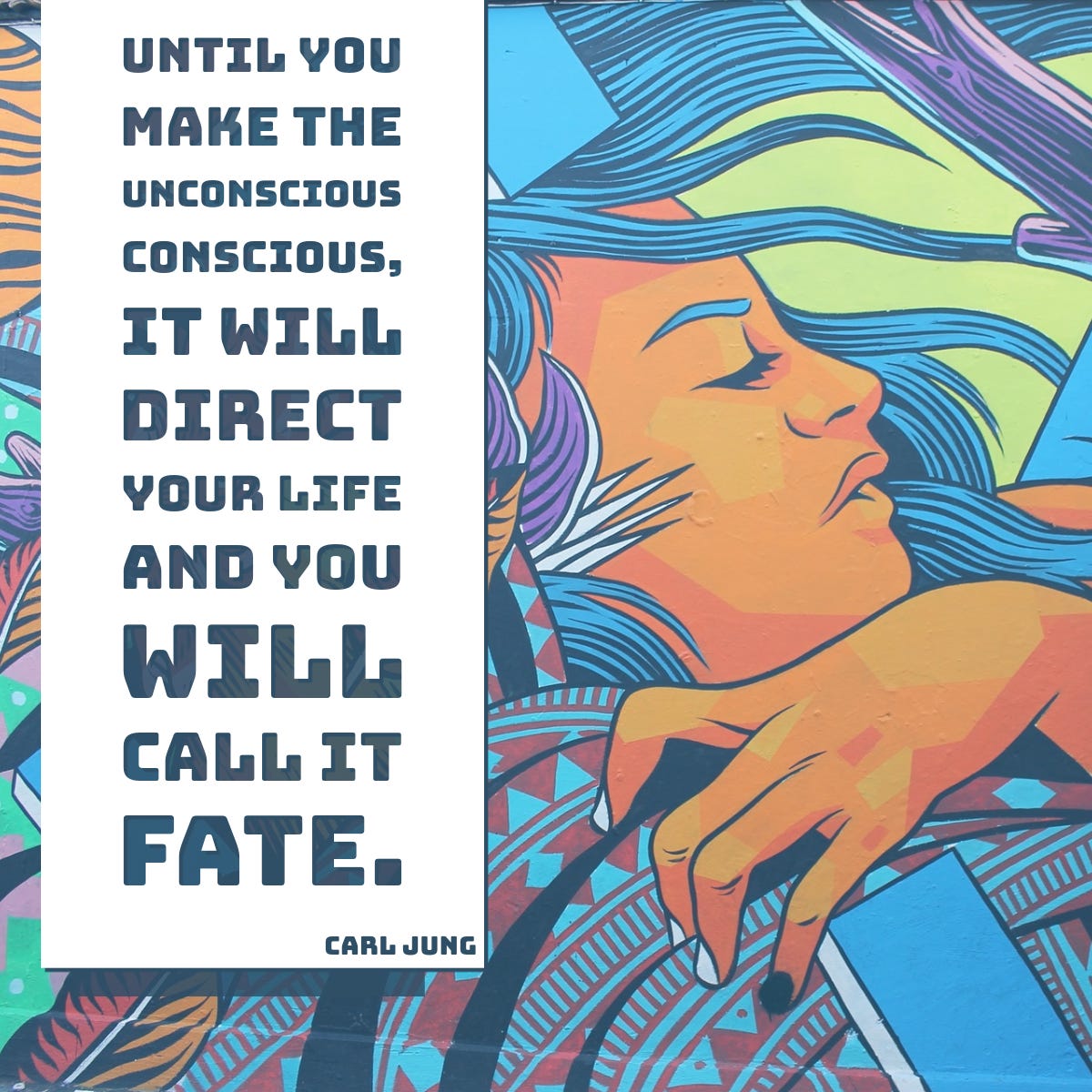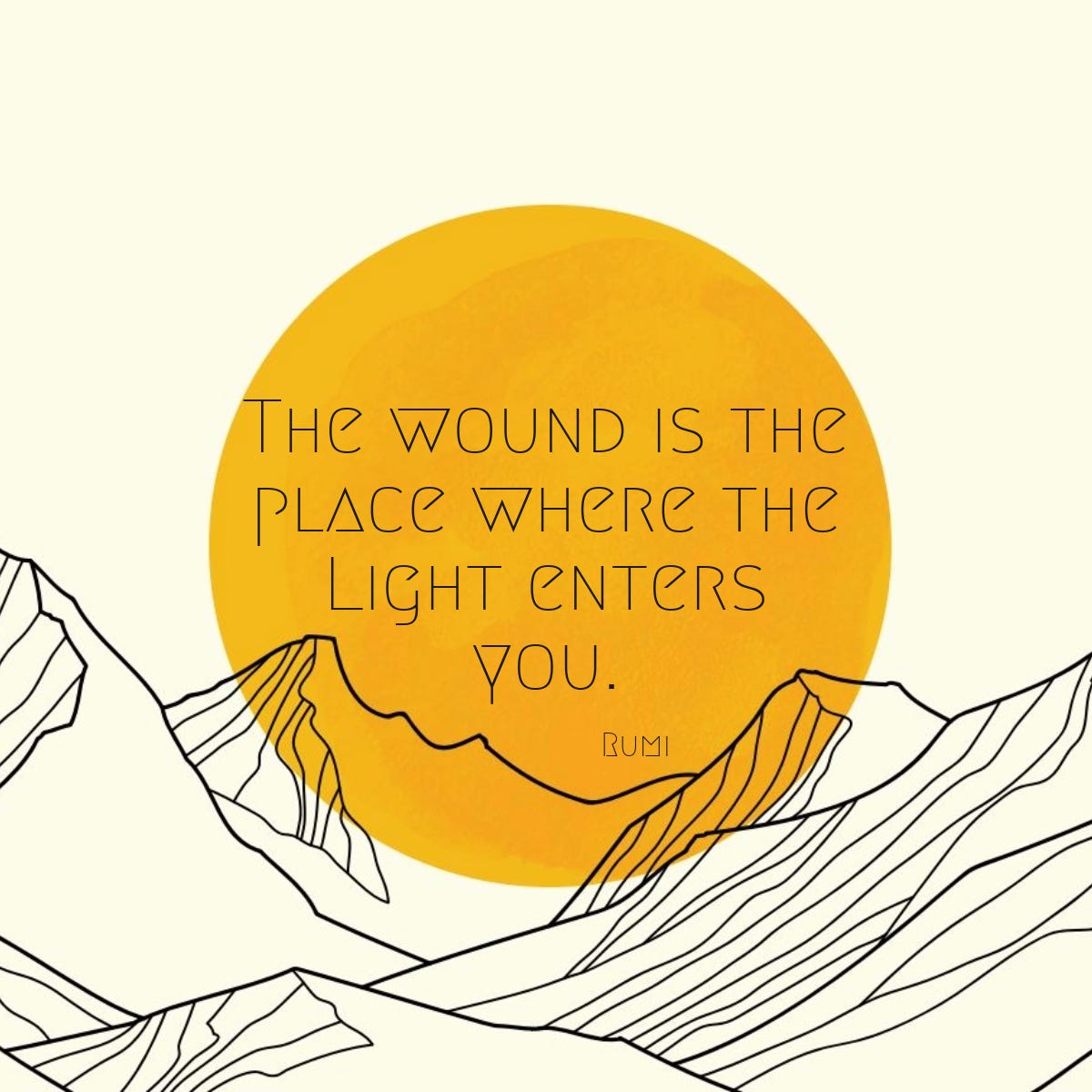It’s been a short while since the last time I posted. Part of this is due to the usual busyness of life, work tasks, and editing my upcoming book (Letting Go of Perfect, A Gay Men’s Guide to Healing from Body Dysmorphia), but also I have been processing a lot from the last Ayahuasca retreat I went to over the New Year period.
I gifted myself the retreat as a reward for completing a year sober from alcohol. Something that has been one of the most enduring journey’s I have had in this incarnation. What the summation of such a tumultuous year has been unlocking the ability to sit with my feelings in their raw state, however painful they may be. Perhaps it was the ‘pre-reading’ material in order to deal with 4 ayahuasca ceremonies, kambo and bufo over the 6-day period.
Not only am I back to reality, I find myself almost forgetting the embrace of Mother Ayahuasca as it broke down some very sealed walls in order to heal my constitution to perhaps aid me further in healing but also lighten the load from the baggage I have been carrying all my life.
Before I begin, I best offer a disclaimer that this post may find some of you unsettled, shocked or jumping to think I’m not in a calm headspace to be writing such things. However, taking a month after the retreat for things to settle, observing my feelings and making an informed choice to share with you the inner workings of my mind and experience, I’m able to do so with a calm and grounded mindset. However, if you find yourself easily triggered, it might be a good idea to close this browser tab.
Many of us walk through life carrying the invisible weight of the trauma they can’t remember. Some may sense a gap in their personal history or others, and was in my case build up patterns of anxiety, hypervigilance or behaviours that don’t offer a clear explanation of their roots. In psychological terms, this can be described as repressed trauma or dissociated memory—a process where the mind “blacks out” essentially to certain experiences to protect itself from overwhelming distress. However, whilst this can be a short-term protective defence mechanism, burying traumatic events can silently shape our way of being, emotions, relationships and overall well-being. The concept has its roots in early psychoanalytic theory—Sigmund Freud famously proposed that pushing traumatic memories out of conscious awareness serves as a defence mechanism. Although the details and interpretations have evolved since Freud, modern research continues to explore how and why the mind can shield us from experiences deemed too painful to face directly.
When Stress Affects How We Form Memories
High stress can disrupt the brain’s ability to encode and store memories effectively. Chronic or intense stress can damage the hippocampus—the part of the brain critical for forming new, explicit (or “declarative”) memories (Bremner 2006). Stress hormones (like cortisol) rise, chemical imbalances occur, and the growth of new brain cells is suppressed, leading the hippocampus to become less able to record experiences in a clear, coherent way. As a result, memories of traumatic events might be fragmented or feel out of reach. This neurological perspective helps us understand why some painful experiences remain buried—or only partially recalled—until the mind and body feel safe enough to revisit them.
The capacity of substances like ayahuasca and psilocybin to uncover repressed trauma has garnered increasing scientific and clinical interest. Research on psychedelic-assisted therapy suggests that these substances may reduce the activity in certain areas of the brain (such as the default mode network), potentially loosening rigid thought patterns and allowing emotional processing to unfold in new ways. In that altered state, a person may come face-to-face with memories and feelings that have long remained in the shadows (Carhart-Harris & Goodwin, 2017).
The power of ayahuasca lies in its role as a teacher. It seems to know exactly what you can handle and delivers it at the right time. I’ve had a few recent experiences with the medicine that didn’t yield significant insights, but I can hypothesise that this latest ceremony came when it felt right to reveal something I had compartmentalised—a small, locked box in my mind. It didn’t simply overwhelm me with information; instead, it eased me in, recognising my default response to traumatic situations is to apologise. It guided me toward experiencing emotions like anger and hatred—feelings I’ve previously associated with guilt and found difficult to embrace. Only then did the medicine help me recall childhood sexual abuse, which I had long suppressed.
I once thought that comprehending the events in my life would break me, but to my astonishment, the opposite has occurred. I’m not angry or sad; instead, I feel profoundly released and lighter as I gain clarity about who I am. My abusers, albeit 6 ft under, no longer hold power over me because naming the trauma has allowed me to reclaim my sense of self. I’m not saying here that I have the solution to my troubles; I’ve inherited a wired nervous system, feelings of mistrust and fear of intimacy, just as Jennifer Freyd (1996) explains in Betrayal Trauma: The Logic of Forgetting Childhood Abuse, Unresolved trauma often plays out in our closest bonds, triggering abandonment issues, mistrust, or fear of intimacy if those early wounds remain unhealed. Recognising how my protective instincts—formed in childhood—were affecting my adult relationships can be both sobering and empowering; I can use this to guide me to be conscious of my thoughts, feelings and behaviours in relationships. I also feel I’m in a good place to share it now, which can reduce the feelings of shame and isolation around it.
What About Trauma and Health?
I’m a big believer that addressing trauma is crucial for physical health. As a nutritionist, this has been my main frustration for the past few years because I’ve seen vast improvements in my own health since I began facing my trauma head-on. A large-scale meta-analysis demonstrated that individuals with multiple Adverse Childhood Experiences (ACEs) are more prone to health-damaging behaviours—such as smoking, excessive alcohol use, and physical inactivity—and have a higher risk of chronic illnesses like cardiovascular disease (Hughes et al. 2017). These findings illustrate how early trauma can derail both physiological development and coping strategies, ultimately undermining overall well-being and longevity.
Yet in the broader pursuit of a long, healthy life, trauma is often overlooked or minimised because it’s subjective and doesn’t neatly align with conventional testing biomarkers—even though its impact can be deleterious. It’s also not something you can simply “biohack” with a pill or measure precisely with the latest health gadget. In many ways, it represents the less glamorous aspect of well-being—an ongoing, sometimes messy process that doesn't always align with the capitalist definition of "health."
Am I making it up?
That was my first reaction when these memories surfaced—surely I must be wrong; I’m the problem. I have to balance it with this being a trauma response and for what some critics call, it is possible that it is possible for memories to become distorted or even implanted over time, which is why many experts emphasise approaching memory work carefully. (Laney & Loftus, 2005). However, for me, it serves as a crucial component, aiding in comprehending my current circumstances and facilitating the process of healing.
This process underscores a key principle in trauma healing: just as our minds naturally compartmentalise overwhelming experiences for self-preservation, certain therapeutic (or entheogenic) approaches can help us reintegrate them when we’re ready. It’s not about forcing every locked box in your mind open. Rather, it’s about creating a safe, supportive space—whether through therapy, mindfulness, or psychedelic ceremony—where deeply buried feelings can emerge and be re-examined with compassion. I’m grateful to have a trusted therapist by my side, guiding me through unpacking and integrating these revelations in a way that feels both healing and sustainable.
Trauma healing is deeply personal, and uncovering repressed memories can be overwhelming. If you’re considering exploring past trauma—whether through therapy, psychedelics, or other methods—please ensure you have psychological support from a qualified professional.
Thank you for taking the time to read this piece! If it resonated with you, I'd greatly appreciate a 'Like'. Your likes play a significant role in enhancing the visibility of my work through the Substack algorithm. Your support means a lot. Thank you!
References:
Bremner, J. D. (2006). Traumatic stress: Effects on the brain. Dialogues in Clinical Neuroscience, 8(4), 445–461. https://doi.org/10.31887/DCNS.2006.8.4/jbremner
Carhart-Harris, R. L., & Goodwin, G. M. (2017). The therapeutic potential of psychedelic drugs: past, present, and future. Neuropsychopharmacology, 42(11), 2105–2113.
Freyd, J. J. (1996). Betrayal Trauma: The Logic of Forgetting Childhood Abuse. Harvard University Press.
Hughes, K., Bellis, M.A., Hardcastle, K.A., Sethi, D., Butchart, A., Mikton, C., Jones, L. and Dunne, M.P., 2017. The effect of multiple adverse childhood experiences on health: a systematic review and meta-analysis. The Lancet public health, 2(8), pp.e356-e366.
Laney, C. and Loftus, E.F., 2005. Traumatic memories are not necessarily accurate memories. The Canadian Journal of Psychiatry, 50(13), pp.823-828.










First of all, Daniel, I want to express compassion for the pain you endured as a child. I've traveled a similar path when, in my forties, I began to confront memories of childhood sexual abuse. The shock was overwhelming. It was my father, someone I cherished deeply as a little girl. In that moment, it felt like my entire world had crumbled. Everything I believed about my childhood and my identity was suddenly thrown into question.
Processing all that happened took me a long time, and there were moments I thought it would consume me. As more memories surfaced, more abusers came to light. Yet, despite everything, I emerged on the other side, stronger than I could have imagined. I learned to appreciate the resiliency, courage and strength of my child parts that protected me so well.
What I've found is a deep clarity about my identity, a sense of ‘solid centeredness’—I hope that resonates with you. I know who I am and what I stand for. I no longer feel the need to justify my existence.
As you pointed out, my abusers may be gone, but they don’t hold power over me anymore. By naming the trauma, I’ve been able to reclaim my sense of self and move forward more profoundly. I believe that as we dive deeper into our true selves, we become lighter, more connected to our soul center. Thank you for sharing your journey with me. It helps me reflect on my own journey. There's value and resonance in the stories we tell.